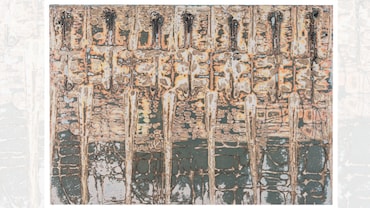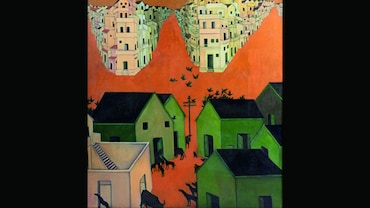- HOME
- /
- Culturescape
- /
Review: A Winning Comeback
Victory City heralds Salman Rushdie’s return to signature themes and powerful storytelling
 Rachel Eliza Griffiths
Rachel Eliza Griffiths
Salman Rushdie had finished Victory City well before the attempt on his life last year. Can one feel a sense of premonition for something that has already happened? It’s tough not to read echoes of Rushdie’s life (including, and especially, the tragic events of August ’22 ) in the overarching concerns of his latest novel. Victory City is structured as the “retelling” of an epic poem called ‘Jayaparajaya’ (literally, ‘victory–defeat’) written by Pampa Kampana, Rushdie’s sorcerer-poet protagonist. Kampana wills the empire of Vijayanagar (literally, the titular ‘victory city’) into existence and then watches its rise and fall, all the while engrossed in composing her masterpiece even as monarchs surge and shrink around her.
If you’re familiar with Rushdie’s ‘greatest hits’, so to speak, you’ll know what this irresistible blend of history, mythology and historiography is leading up to. Books like The Moor’s Last Sigh and Haroun and the Sea of Stories used the ‘making and breaking of myths’ as a springboard to talk about signature Rushdie themes like nation-hood, immigration, ‘in-betweenness’, religious orthodoxy and the evolution of cultural norms. This modus operandi is, I would argue, perfected by Victory City. Again and again, you’ll find passages in this novel that seem to be speaking from a timeless place, as though the narrator had already seen glimpses of the future in Vijayanagar’s past.
Take this passage, for example, in the novel’s last section, where we meet the Vijayanagar kingdom’s latest monarch, Achyuta Deva Raya. There are unmissable echoes of the late Libyan dictator Muammar Gaddafi(1942–2011), who was famous for travelling with an all-female posse of bodyguards (after Gaddafi died, some of these bodyguards alleged serial sexual abuse on the dictator’s part).
“He was dressed as if for combat, in a leather jerkin over a chainmail vest, well-worn boots on his feet, a sword at his waist and a shield on his back. His companions were a disorganized band of drinking ruffians (…) and behind them came his official royal escort, a band of women warriors from the palace guard whose expressions bore witness to their anger at the lascivious approaches made by the king’s friends on the road, the king’s own inappropriate behaviour, and their professional embarrassment at the brutish bad manners of the new monarch (…)”
But really, the best part about Victory City is that this book heralds the return of Rushdie the cultural comedian par excellence, whose multilingual puns and multi-cultural riffs on identity transformed the literary landscape in the ’80s and ’90s.
This is one of the funniest novels you’ll read all year, even when it’s talking about extremely grim things. For example, even in the middle of a passage talking about the destruction of cultural artefacts, Rushdie manages to make snarky jokes about the pettiness of cultural chauvinism; note the straightfaced “we only have her word” at the very end and all that these five words both reveal and efface: “Of the paintings made in the royal atelier, none survive, because during the apocalypse of Bisnaga its destroyers paid particular attention to the obliteration of representational art. Also, regarding the enormous quantity of erotic sculptures and friezes, we only have her word that they existed.”
By the time you’re finished with Victory City, you’ll see the process of writing history in a very different light. History may be written by victors, but the lessons contained therein hold true for victor and vanquished alike. And, as Rushdie shows us, both group are more or less equally prone to ignoring these lessons, even at the cost of their own integrity.
In my view, this is Rushdie’s finest work in well over a decade. It joins Midnight’s Children, Haroun and the Sea of Stories and The Moor’s Last Sigh in the top tier of Rushdie novels—highly recommended for readers of all ages and persuasions.






